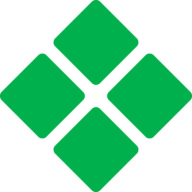

Cisco Umbrella and Infoblox BloxOne Threat Defense both compete in the web security and DNS protection market, with each product having its strengths. Cisco Umbrella seems to have an edge in ease of integration and diverse security features, while Infoblox impresses with its focus on DNS security and analytics.
Features: Cisco Umbrella provides DNS-based attack protection, web content filtering, and malware prevention. It integrates seamlessly with existing infrastructure and offers proactive threat blocking. Infoblox BloxOne Threat Defense emphasizes DNS security, advanced threat analytics, and real-time threat intelligence for organizations prioritizing DNS-related security.
Room for Improvement: Cisco Umbrella could enhance reporting customization, expand tool integrations, and improve malware detection. Users also suggest better support for diverse network architectures. Infoblox BloxOne Threat Defense needs better documentation, improved integration with other platforms, and more streamlined onboarding processes for less technical users.
Ease of Deployment and Customer Service: Cisco Umbrella is designed for cloud deployment and provides detailed support but requires improvements in response time. Infoblox BloxOne supports cloud deployments with standout customer service, although it may be hindered by inflexible purchasing processes. Both have straightforward implementation, but Infoblox offers extensive support through sales engineers during setup.
Pricing and ROI: Cisco Umbrella is seen as expensive but offers flexible subscription plans and discounts when bundled with other Cisco products, contributing to reduced risk management costs and improved security. Infoblox BloxOne is also considered costly but justifies its investment with strong DNS security capabilities, offering healthy ROI due to preemptive security measures against breaches.
| Product | Market Share (%) |
|---|---|
| Cisco Umbrella | 20.6% |
| Infoblox BloxOne Threat Defense | 6.3% |
| Other | 73.1% |


| Company Size | Count |
|---|---|
| Small Business | 49 |
| Midsize Enterprise | 30 |
| Large Enterprise | 51 |
| Company Size | Count |
|---|---|
| Small Business | 3 |
| Midsize Enterprise | 3 |
| Large Enterprise | 12 |
Cisco Umbrella delivers rapid DNS security with over 30,000 customers, providing outstanding threat protection and handling more than 600 billion requests daily. It's recognized for high threat efficacy in the SSE domain and integrates elements like SWG, ZTNA, CASB, and more.
Cisco Umbrella is renowned for its effective DNS-layer security against ransomware and phishing. It offers flexible content filtering and integrates seamlessly with existing networks while providing single-pane-of-glass management for centralized monitoring. Its robust threat intelligence and customizable policies are central to its appeal. Users highlight room for improvement in areas like WHOIS data inclusion, malware enhancement, and reporting analytics. Integration with other threat feeds and better client support are requested for more comprehensive coverage.
What are the key features of Cisco Umbrella?
What should users expect in reviews about Cisco Umbrella?
Industries implement Cisco Umbrella primarily for DNS-level security, web filtering, and protecting remote employees. It strengthens cybersecurity frameworks by blocking malware and avoiding access to harmful sites. The tool is widely integrated with Active Directory and Cisco Meraki, providing consistent internet security for employees.
Infoblox BloxOne Threat Defense strengthens and optimizes your security posture from the foundation up, giving you the visibility, control and automation to secure the hybrid workplace. Operating at the DNS level, BloxOne Threat Defense uncovers threats that other solutions do not and stops attacks earlier in the threat lifecycle. Through pervasive automation and ecosystem integration, it drives efficiencies in SecOps, increases the effectiveness of the existing security stack, secures digital and work-from-anywhere efforts and lowers the total cost for cybersecurity.
We monitor all Domain Name System (DNS) Security reviews to prevent fraudulent reviews and keep review quality high. We do not post reviews by company employees or direct competitors. We validate each review for authenticity via cross-reference with LinkedIn, and personal follow-up with the reviewer when necessary.